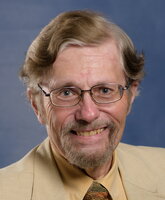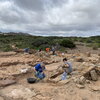
The Department of History at the University of Illinois at Urbana-Champaign participates in an interdisciplinary field in the study of Late Antiquity, encompassing the Late Roman, Early Medieval, and Early Byzantine periods (third through seventh centuries CE). Late Antiquity now is recognized as one of the most significant periods of the human past. In the west, Late Antiquity saw the gradual withering of classical society, government, and religion, and the formation of a strictly western European, Christian society that eventually would culminate in the modern‑day western European nations. And in the eastern Mediterranean, the Roman Empire continued and evolved as the "Byzantine Empire," and the seventh century saw the birth of another major world religion, Islam, along with the Islamic caliphate. The field in Late Antiquity has interdisciplinary aspects ranging from geographical (eastern and western Europe, North Africa, the Near East), to methodological (including palaeography, epigraphy, numismatics, prosopography, and computer applications), to topical (too numerous to mention), and to disciplinary (cited below). It is the only program of its kind in the state and surrounding area. Its associated faculty in Ancient and Medieval Studies in the Department of History and in other university Departments have international reputations in their fields and provide the opportunity to craft a program of study in Late Antiquity of unparalleled richness and depth.
Graduate study in Late Antiquity at Illinois focuses on preparing graduate students for life in the world of the scholarly and academic professional. There are late antiquity seminars nearly every semester with end-of-semester symposia. Field faculty often sponsor sessions at the annual International Medieval Studies Congress at Western Michigan University. Prior to the congress, we and our colleagues in Medieval Studies sponsor a pre-Kalamazoo symposium where our graduate student presenters give previews of their papers. Late Antique faculty also have sponsored activities such as a Medieval Latin Reading Group, graduate student mini-conferences; and a Late Antique student/faculty study group under the rubric “Late Antiquity after Hours.” Graduate students also are encouraged to present their research at other internal and external venues.
Campus Resources
The University’s Program in Medieval Studies rings together scholars from the classical period to the Renaissance, and offers an extensive lecture series and the possibility of graduate fellowships for students pursuing the graduate Certificate in Medieval Studies. The field is the home of the Biographical Database for Late Antiquity, the Internet Discussion Lists LT-ANTIQ, NUMISM-L, and PROSOP-L, and the Society for Late Antiquity. Containing more than eight million volumes, the University of Illinois Library is the third largest academic library in the nation, and the Classics Library is the starting point for accessing a multitude of late antique resources. We also are affiliated with the Newberry Library of Chicago, which boasts particularly fine collections in Renaissance and early modern Europe.
Other Resources
Faculty in Other Departments
History Faculty working in Late Antiquity



Related News
